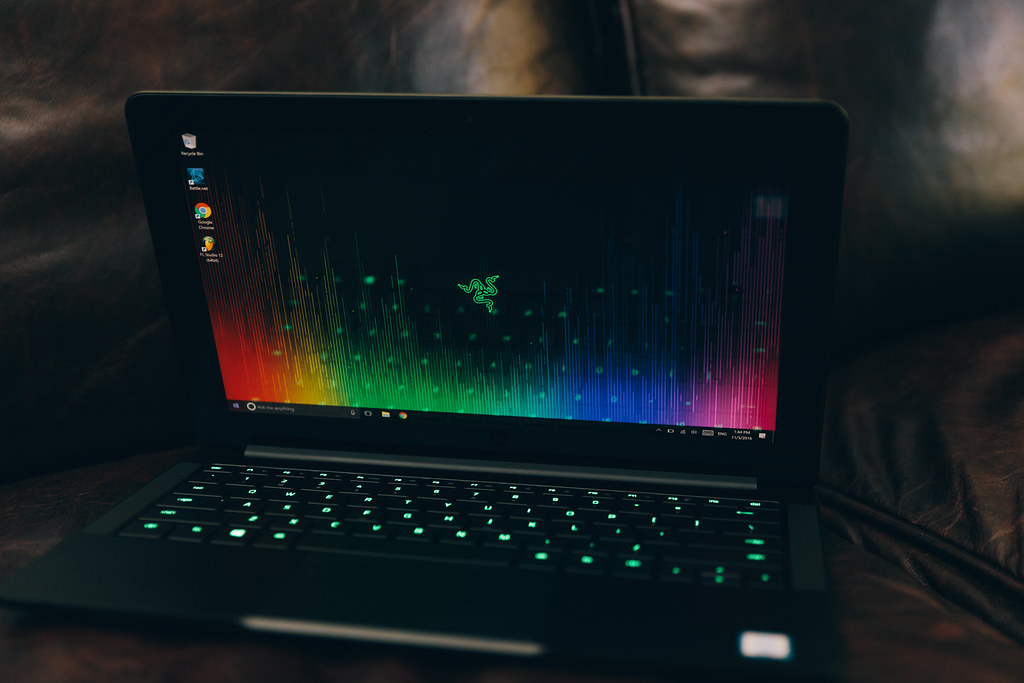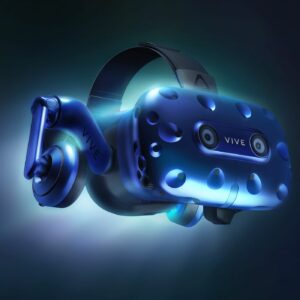Wallet-Friendly Wonders: Budget Picks
- Acer Nitro 5: Best for aspiring VR developers on a budget who need a reliable laptop with decent performance.
- Lenovo Legion 5: Best for budget-conscious VR developers who want a laptop with a great balance of performance and affordability.
- HP Pavilion Gaming Laptop: Best for VR developers looking for a cost-effective laptop with good performance without spending too much.
The Cream of the Crop: Top Recommendations
- ASUS ROG Zephyrus G14: Best for VR developers who prioritize portability and battery life without sacrificing performance.
- Razer Blade 15 Advanced: Best for VR developers who value both power and aesthetics, and are willing to pay a premium for a top-tier laptop.
- MSI GS66 Stealth: Best for VR developers seeking a powerful, stylish laptop with a high refresh rate display and customizable keyboard.
- Alienware m15 R4: Best for VR developers who appreciate the unique design and powerful performance, and don’t mind a slightly heavier laptop.
- MacBook Pro: Best for VR developers who prefer macOS and are willing to invest in a premium laptop with excellent performance and battery life.
Hey there, tech-savvy friend! Are you ready to dive into the exciting world of virtual reality development? As a fellow VR enthusiast, I know how crucial it is to have the right laptop for the job. That’s why I’ve put together this comprehensive guide on the best laptops for VR development in 2024! Now, let’s get this virtual party started! 🎉
You know what they say: “Time flies when you’re having fun!” And boy, have the past few years been an absolute rollercoaster for VR technology. It seems like just yesterday we were all struggling with bulky headsets and tangled wires, and now we’re experiencing out-of-this-world virtual experiences. But, as thrilling as these advancements may be, they’ve also raised the bar for what’s expected from our trusty laptops.
So, if you’re a seasoned VR developer or just dipping your toes into this immersive realm, don’t worry – I’ve got your back. We’ll take a look at the latest and greatest laptops that can handle all your VR development needs. Trust me, once you’ve finished reading this article, you’ll feel like a kid in a candy store with all the irresistible options available.
Wallet-Friendly Wonders: Budget Picks
Who says you need to break the bank to create mesmerizing VR experiences? I’m a firm believer that you don’t need to sell a kidney to afford a laptop that’s perfect for VR development. If you know where to look, there’s a treasure trove of wallet-friendly wonders just waiting to be discovered.
Budget picks in the VR development world are like finding a hidden gem at a flea market – you just need to know where to look. Brands like Acer, Lenovo, and HP are champions of the budget category, offering models that strike a delicate balance between performance and affordability.
When scouting for budget laptops, aim for at least an Intel Core i5 or an AMD Ryzen 5 processor, and a GPU like the NVIDIA GTX 1660 Ti or an AMD Radeon RX 5500 XT. Sure, these might not be the latest and greatest, but they’ll still allow you to dip your toes into the fascinating world of VR development without leaving you penniless.
To help you on your quest for wallet-friendly wonders, here are three budget laptop examples that offer a great balance of performance and affordability for VR development:
1. Acer Nitro 5

Best for: Aspiring VR developers on a tight budget who need a reliable machine that can handle basic development tasks.
The Acer Nitro 5 is a budget-friendly gaming laptop that packs a punch. It comes with a 9th Gen Intel Core i5 processor or an AMD Ryzen 5 4600H, paired with an NVIDIA GTX 1650 or an AMD Radeon RX 560X GPU. With its 15.6-inch Full HD display, up to 16GB RAM, and a 512GB SSD, the Nitro 5 is a reliable option for aspiring VR developers on a budget.
Pros:
- Affordable price point
- Decent performance with Intel Core i5 or AMD Ryzen 5 processor
- NVIDIA GTX 1650 or AMD Radeon RX 560X GPU
- Upgradable RAM and storage
Cons:
- Less impressive build quality compared to premium laptops
- Average battery life
- Bulky design
2. Lenovo Legion 5

Best for: Budget-conscious VR developers who seek a balance between performance and affordability without sacrificing too much on either side.
The Lenovo Legion 5 offers an excellent price-to-performance ratio, featuring an AMD Ryzen 5 4600H processor, NVIDIA GTX 1660 Ti GPU, and a 15.6-inch Full HD display. With up to 16GB RAM and a 512GB SSD, this laptop provides ample power for your VR development endeavors without breaking the bank.
Pros:
- Great price-to-performance ratio
- AMD Ryzen 5 4600H processor and NVIDIA GTX 1660 Ti GPU
- 15.6-inch Full HD display
- Good thermal performance
Cons:
- Heavier and bulkier than more premium options
- Limited battery life
- Not as powerful as high-end laptops
3. HP Pavilion Gaming Laptop

Best for: VR developers looking for a cost-effective laptop with good performance without spending too much.
The HP Pavilion Gaming Laptop is another budget-friendly option that doesn’t skimp on performance. It comes equipped with a 9th Gen Intel Core i5 or an AMD Ryzen 5 processor, an NVIDIA GTX 1650 GPU, and a 15.6-inch Full HD display. With up to 16GB RAM and a 256GB SSD, the HP Pavilion Gaming Laptop is a cost-effective choice for VR developers looking to save some cash.
Pros:
- 9th Gen Intel Core i5 or AMD Ryzen 5 processor options
- NVIDIA GTX 1650 GPU
- Affordable price point
- Green backlit keyboard for a gaming aesthetic
Cons:
- Less storage capacity with a 256GB SSD
- Battery life is average
Keep in mind that, as with all things budget, there might be some compromises, such as reduced battery life or less sleek design. However, don’t let that deter you! With a bit of research and some savvy shopping, you can find a wallet-friendly wonder that’ll serve as your loyal VR development companion without burning a hole in your pocket.
The Cream of the Crop: Top Recommendations
Alright, my fellow VR enthusiasts, it’s time for the pièce de résistance, the crème de la crème of laptops for VR development! These top recommendations will make your heart race and your fingers itch to dive into the realm of virtual reality. So, without further ado, let’s unveil the cream of the crop:
1. ASUS ROG Zephyrus G14

Best for: VR developers who prioritize portability and battery life without sacrificing performance.
The ASUS ROG Zephyrus G14 is a force to be reckoned with, boasting an AMD Ryzen 9 5900HS processor and an NVIDIA RTX 3060 GPU. Its compact 14-inch QHD display, 16GB RAM, and 1TB SSD make it a top contender in the VR development world. Plus, its sleek design and impressive battery life set it apart from the competition.
Pros:
- Powerful AMD Ryzen 9 5900HS processor
- Compact and portable 14-inch design
- Excellent battery life for a gaming laptop
- Customizable AniMe Matrix LED display (optional)
Cons:
- No built-in webcam
- Limited port selection
2. Razer Blade 15 Advanced

Best for: VR developers who value both power and aesthetics, and are willing to pay a premium for a top-tier laptop.
The Razer Blade 15 Advanced is the epitome of power and style. With a 10th Gen Intel Core i7 processor, NVIDIA RTX 3070 GPU, and a stunning 15.6-inch QHD display with a 240Hz refresh rate, it’s tailor-made for VR development. Its 16GB RAM, 1TB SSD, and a sleek, slim design make it a true masterpiece.
Pros:
- High-performance 10th Gen Intel Core i7 processor and NVIDIA RTX 3070 GPU
- Stunning 15.6-inch QHD display with a 240Hz refresh rate
- Slim and stylish design
- Good port selection
Cons:
- Expensive compared to some competitors
- Average battery life
3. MSI GS66 Stealth

Best for: VR developers seeking a powerful, stylish laptop with a high refresh rate display and customizable keyboard.
The MSI GS66 Stealth is a stealthy powerhouse, featuring a 10th Gen Intel Core i7 processor, NVIDIA RTX 3070 GPU, and a jaw-dropping 15.6-inch Full HD display with a 300Hz refresh rate. With 16GB RAM, a 1TB SSD, and a stealthy design that’s as elegant as it is powerful, it’s a top choice for VR developers who crave the best of the best.
Pros:
- 10th Gen Intel Core i7 processor and NVIDIA RTX 3070 GPU
- 15.6-inch Full HD display with a 300Hz refresh rate
- Understated, elegant design
- Per-key RGB keyboard customization
Cons:
- Fans can get loud under heavy load
- Premium price point
4. Alienware m15 R4

Best for: VR developers who appreciate the unique design and powerful performance, and don’t mind a slightly heavier laptop.
The Alienware m15 R4 is a true icon in the gaming and VR development community. Under its futuristic design, you’ll find a 10th Gen Intel Core i7 processor, NVIDIA RTX 3070 GPU, and a mesmerizing 15.6-inch Full HD display with a 300Hz refresh rate. Equipped with 16GB RAM and a 1TB SSD, this extraterrestrial beast is ready to help you create out-of-this-world VR experiences.
Pros:
- Impressive 10th Gen Intel Core i7 processor and NVIDIA RTX 3070 GPU
- Futuristic and eye-catching design
- 15.6-inch Full HD display with a 300Hz refresh rate
- Good thermal management
Cons:
- Heavier and bulkier than some competitors
- Battery life could be better
5. MacBook Pro

Best for: VR developers who prefer macOS and are willing to invest in a premium laptop with excellent performance and battery life.
For those who prefer macOS, the MacBook Pro 16-inch is a top-tier option for VR development. With its powerful Apple M1/M2 Pro or M1/M2 Max chip, up to 64GB RAM, and up to 8TB SSD, it’s a force to be reckoned with. The stunning Retina display and sleek design make it not only a pleasure to work on but also a fashion statement.
Pros:
- Powerful Apple M1 Pro or M1 Max chip
- Stunning Retina display
- Excellent battery life
- Premium build quality and sleek design
Cons:
- Expensive, especially with higher configurations
- Limited gaming ecosystem on macOS compared to Windows
These top recommendations represent the cream of the crop in the VR development world. They combine power, performance, and stunning visuals to deliver the ultimate VR development experience. By investing in one of these state-of-the-art machines, you’ll be well-equipped to create mind-blowing virtual experiences that will leave users in awe. So, brace yourself for an exhilarating ride through the realms of virtual reality, and let these laptops be your trusted steeds on this thrilling adventure!
Turbocharged VR Dev Machines
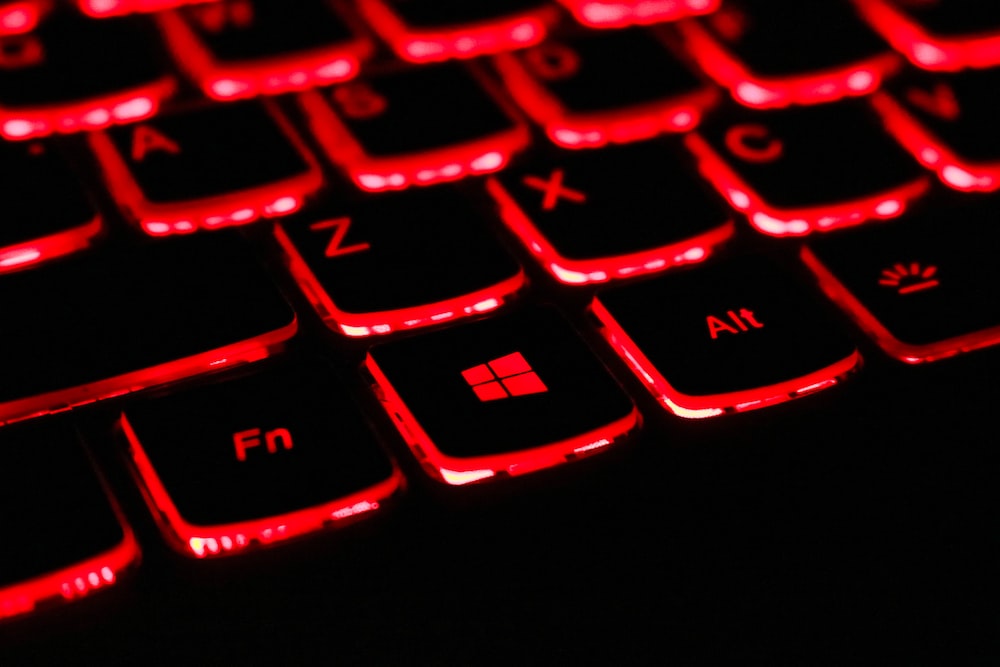
When it comes to VR development, there’s no room for sluggish performance. A powerful processor is the heart of any turbocharged VR dev machine, and in 2024, the battle between Intel and AMD is fiercer than ever. I’m talking Hulk vs. Thor level combat here, folks! 💪
Intel’s latest 12th Gen Core processors are turning heads, offering jaw-dropping performance with their Alder Lake architecture. But don’t count AMD out yet, as their Ryzen 5000 series processors are still packing a punch, making them a worthy contender in the race for VR development supremacy.
Now, you might be wondering, “How many cores do I need?” In the world of VR, more is always better, so aim for at least a 6-core processor if you’re serious about your virtual escapades. But if you’re looking to truly flex your VR muscles, an 8-core or higher processor will make your laptop a veritable beast, ready to conquer any development challenge that comes its way.
Remember, folks, in the virtual reality development arena, performance is king. So, don’t skimp on that CPU power if you want to create the next groundbreaking VR experience that’ll leave users begging for more!
These articles might be useful:
Graphics That Dazzle
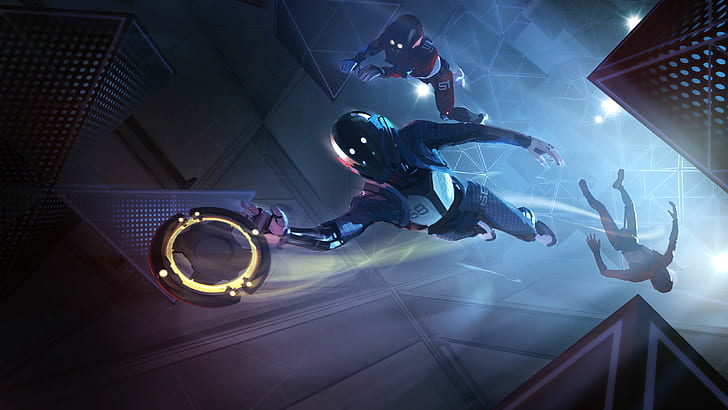
Let’s face it: when it comes to VR development, breathtaking graphics are non-negotiable. You want your virtual worlds to be so enchanting that users feel like they’ve been teleported to a different dimension. And for that, you need a GPU that’s up to the task.
NVIDIA and AMD are the undisputed rulers of the GPU kingdom, offering a smorgasbord of graphics cards that can make any VR developer drool. NVIDIA’s GeForce RTX 3000 series has been turning heads with its ray tracing capabilities, while AMD’s Radeon RX 6000 series is giving Team Green a run for its money with its RDNA 2 architecture.
But how do you choose the perfect GPU for your VR dev needs? It’s simple, really – just follow the age-old adage: “go big or go home.” Aim for at least an NVIDIA RTX 3060 or an AMD Radeon RX 6700 XT to ensure smooth sailing through the choppiest of virtual waters. And if you’re looking to create truly awe-inspiring graphics that’ll leave users speechless, consider splurging on an NVIDIA RTX 3080 or an AMD Radeon RX 6800 XT.
After all, dazzling graphics are the lifeblood of any memorable VR experience, and investing in a top-notch GPU is your ticket to crafting virtual masterpieces that’ll have users coming back for more!
Featherlight Titans: Portability Meets Power
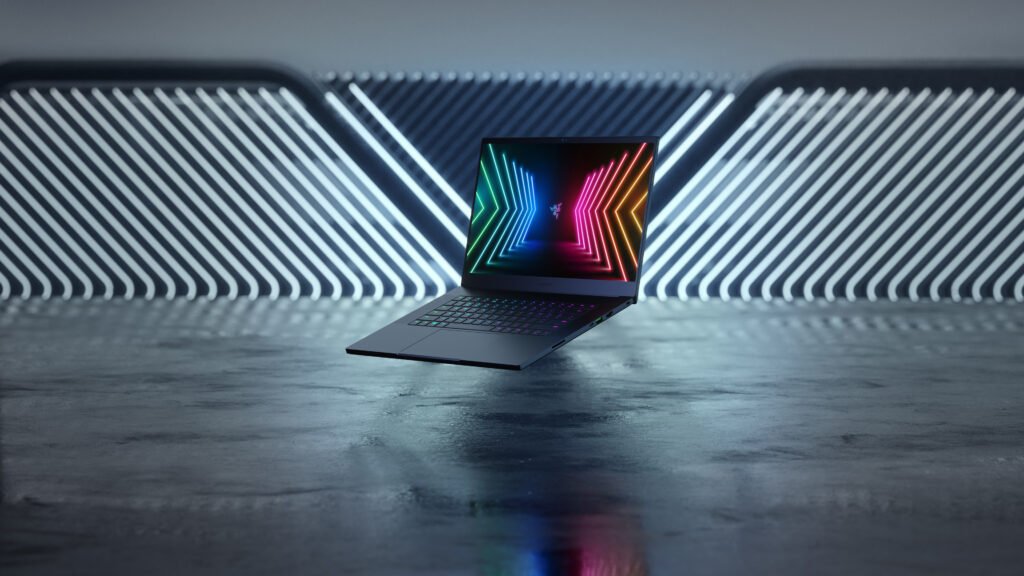
As a VR developer, you’re always on the go—jumping between meetings, client presentations, or just looking for a change of scenery while you’re weaving your next virtual tapestry. That’s where the featherlight titans come into play: laptops that pack a serious punch in performance while maintaining their portability.
Gone are the days when powerful laptops weighed more than a baby elephant! In 2024, several svelte machines are defying the odds, offering top-of-the-line specs without breaking your back (or the bank). Brands like Razer, Dell, ASUS, and MSI are leading the charge with their ultra-thin, lightweight models that still manage to cram in all the bells and whistles needed for seamless VR development.
When choosing your featherlight titan, prioritize laptops with a weight of 5 pounds or less and a thickness of under an inch. But remember, just because it’s light doesn’t mean it’s right. Ensure the laptop’s specs still meet the demands of your VR projects, such as having powerful CPUs, dazzling GPUs, and ample storage and RAM.
By opting for a featherlight titan, you’ll enjoy the freedom to work on your mind-blowing VR creations wherever inspiration strikes, without sacrificing the performance you need to make your virtual dreams come true.
In conclusion, finding the best laptop for VR development depends on your individual needs, preferences, and budget. This guide has presented a range of options, from the cream of the crop with top-tier performance and design to wallet-friendly wonders that offer a great balance of affordability and power.
Remember, it’s essential to consider the critical aspects of VR development, such as processing power, graphics capabilities, portability, and battery life, when choosing your perfect laptop. By taking the time to weigh the pros and cons of each option, you can find the ideal companion to help you create mesmerizing and immersive virtual experiences that will leave your audience in awe.
Whether you’re a seasoned VR developer or just starting your journey in the world of virtual reality, there’s a laptop out there that’s perfect for you. So, take a leap of faith, dive into the captivating realm of VR development, and let your creativity run wild with the help of your trusty laptop sidekick!

